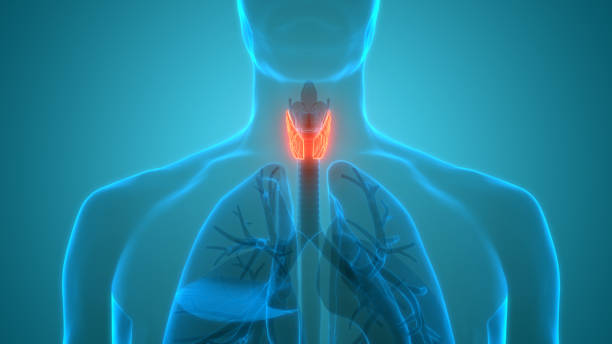
In response to a foreign invasion in our body like in form of viruses or bacteria, certain proteins are formed in the blood that protects us from these foreign substances. These are known as antibodies. But sometimes antibodies attack the body's cells, tissues, and organs by mistake creating an autoimmune response.
What are thyroid antibodies?
Likewise, thyroid antibodies develop in a person’s body, when the immune system mistakenly attacks the thyroid cells and tissues. This in turn leads to inflammation, tissue damage, or disrupted thyroid function. These antibodies can then cause autoimmune thyroid disorders, such as Graves’ disease and Hashimoto’s thyroiditis.
Hence, when thyroid antibodies attack healthy thyroid cells, it leads to an autoimmune disorder of the thyroid. These disorders can in turn cause serious health problems if not treated.
There are different types of thyroid antibodies. Some antibodies destroy thyroid tissue. Others cause the thyroid to make too much of certain thyroid hormones.
How to detect thyroid antibodies?
Laboratory tests help detect the presence and measure the number of specific thyroid antibodies in the blood. Understanding the underlying cause of thyroid dysfunction can help doctors plan the best course of treatment.
The thyroid antibodies test is used to help diagnose autoimmune disorders of the thyroid, which usually measures one or more of the following types of antibodies:
- Thyroid peroxidase antibodies (TPO). The presence of these antibodies can be a sign of:
Hashimoto disease, also known as Hashimoto thyroiditis. This is an autoimmune disease and the most common cause of hypothyroidism. Hypothyroidism is a condition in which the thyroid doesn't make enough thyroid hormones.
- Graves' disease. This is also an autoimmune disease and the most common cause of hyperthyroidism. Hyperthyroidism is a condition in which the thyroid makes too much of certain thyroid hormones.
- Thyroglobulin antibodies (AntiTg). These antibodies can also be a sign of Hashimoto’s disease. Most people with Hashimoto’s disease have high levels of both AntiTg and TPO antibodies.
- Thyroid-stimulating hormone (TSH) receptor. These antibodies can be a sign of Grave's disease.
Purpose of the test
Thyroid antibody tests can diagnose hypothyroidism or hyperthyroidism as a result of autoimmune thyroid disease. Hypothyroidism describes an underactive thyroid gland, while hyperthyroidism is an overactive thyroid gland.
Thyroid antibody tests may also be used for the following purposes:
- To diagnose an autoimmune disorder, such as Hashimoto’s thyroiditis or Graves’ disease
- To define the best course of treatment
- To determine whether your mild hypothyroidism is likely to get worse over time
- To evaluate the risk to the fetus in pregnant individuals with thyroid disease
- To estimate the risk of relapse after treatment for Graves’ disease
- To monitor if you have been previously treated for thyroid cancer
Who needs to test?
You may need this test if you have symptoms of a thyroid problem and your provider thinks they may be caused by Hashimoto disease or Grave's disease.
Symptoms of Hashimoto’s disease include:
- Weight gain
- Fatigue
- Hair loss
- Low tolerance for cold temperatures
- Irregular menstrual periods
- Constipation
- Depression
- Joint pain
Symptoms of Grave's disease include:
- Weight loss
- Bulging of the eyes
- Tremors in the hand
- Low tolerance for heat
- Trouble sleeping
- Anxiety
- Increased heart rate
- Swollen thyroid, known as goiter
A thyroid antibodies test may also be recommended if other thyroid tests show that the thyroid hormone levels are too low or too high. These tests include measurements of hormones known as T3, T4, and TSH (thyroid-stimulating hormone). The more thyroid antibodies you have, the more likely it is that you have an autoimmune disorder of the thyroid.
Sometimes, thyroid disease can worsen during pregnancy, harming both the mother and her unborn baby. If one ever had thyroid disease and is pregnant, one may be tested for thyroid antibodies along with tests that measure thyroid hormones.
Key Takeaway
The presence of antibodies is used as an indicator to confirm the diagnosis of autoimmune thyroid diseases. In certain cases, some people will test positive for more than one type of thyroid antibody and it is also possible to test positive for thyroid antibodies even without having thyroid disease. The presence of antibodies in a person with borderline thyroid disease can indicate the possibility of developing full-blown thyroid disease.
Hence, getting tested and treated is better than being ignorant!

